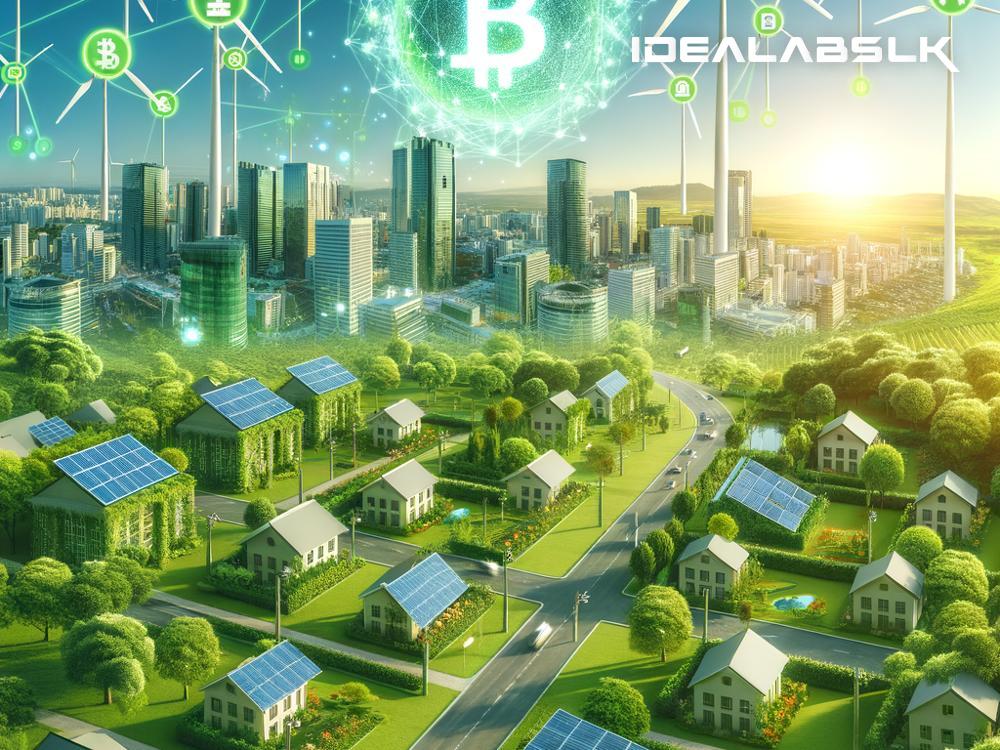Blockchain for Sustainable Real Estate Development: A Simple Guide
In a world where sustainability is becoming more than just a buzzword, industries across the globe are turning towards technology to help reduce their environmental footprint. Real estate, one of the largest contributors to global emissions and energy consumption, is no exception. Here, blockchain technology emerges as a promising tool for promoting sustainability in real estate development. But what exactly is blockchain, and how can it help make real estate more sustainable? Let’s break it down in simple English.
Understanding Blockchain
Imagine a digital ledger that is accessible to many people but cannot be tampered with. This ledger contains blocks of information, and whenever a new piece of data is added, it’s linked to the previous one, creating a chain. This is what we call blockchain. Its key features are transparency, security, and immutability, meaning once something is recorded, it cannot be changed. This makes blockchain an exciting prospect for various industries, including real estate.
Blockchain and Real Estate: A Sustainable Match
Real estate development involves multiple stakeholders, extensive paperwork, numerous transactions, and a significant environmental footprint. Here's how blockchain can help alleviate some of these issues, promoting a more sustainable approach:
- Transparency and Efficiency in Transactions:
Blockchain can store property records, legal documents, and transaction histories in a transparent manner. Since this information is readily available and immutable, it reduces the need for paper-based documentation, thereby decreasing waste. Additionally, smart contracts—a type of self-executing contract with the terms of the agreement directly written into code—can automate transactions, making the buying and selling process much more efficient and less energy-intensive.
- Enhanced Building Management:
Blockchain can also revolutionize how buildings are managed. By combining blockchain with IoT (Internet of Things) devices, property managers can monitor and control energy use in real-time. This integration allows for more efficient energy management, reducing the carbon footprint of buildings. For instance, a blockchain system can automatically adjust heating, ventilation, and air conditioning systems based on real-time data, ensuring they are only used when necessary.
- Improved Material Sourcing:
Sustainability in real estate isn’t just about energy consumption; it’s also about the materials used in construction. Blockchain can provide a transparent platform for tracking the sourcing of sustainable materials. By using blockchain, developers can verify that the materials they use are sustainably sourced, reducing the environmental impact of construction projects. This transparency could also encourage more suppliers to adopt sustainable practices.
- Crowdfunding for Sustainable Projects:
Funding is a significant challenge for sustainable real estate projects due to their often higher upfront costs. Blockchain could facilitate crowdfunding, allowing small investors to fund sustainable projects. This not only opens up new funding avenues for developers but also allows more people to invest in sustainable real estate, promoting green projects and innovations.
- Tokenization of Real Estate Assets:
Blockchain enables the tokenization of real estate assets, turning these assets into digital tokens that can be bought and sold. This process can make investing in sustainable real estate more accessible to a broader audience. Additionally, it can help fund the retrofitting of existing buildings into more energy-efficient structures, further contributing to sustainable development.
Challenges and the Road Ahead
While the potential of blockchain in sustainable real estate is immense, there are challenges to overcome. Regulatory hurdles, the need for widespread adoption, and concerns about blockchain’s own energy consumption are significant issues that need addressing. However, with advancing technology and growing commitment to sustainability, the integration of blockchain in real estate development is a promising step towards a more sustainable future.
In Conclusion
Blockchain technology offers a novel approach to addressing some of the most pressing environmental challenges in real estate development. By promoting transparency, efficiency, and accessibility, blockchain can help pave the way for more sustainable practices in the industry. While not a panacea, its continued integration into real estate projects worldwide signals a positive shift towards minimizing the industry’s environmental footprint. In simple terms, blockchain could be the key to building a greener, more sustainable future in real estate.

